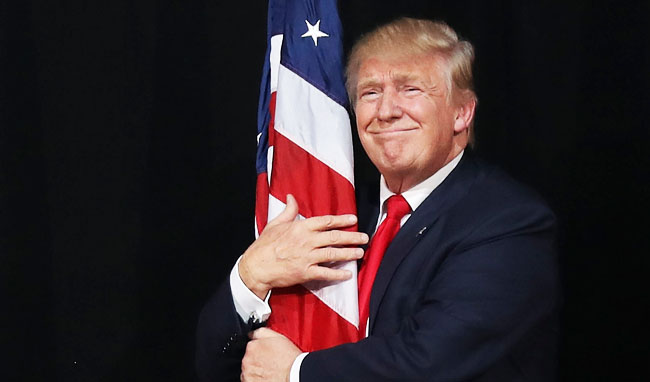
Election 2016 has certainly been a banner time for people who believe things that bolster their already firmly held beliefs. While supporters of Hillary Clinton are making daily claims to support the idea their candidate would’ve won, Donald Trump supporters are soaring high above them all on a line of chemtrails and dreaded “fake news.” Between conspiracy theories about Hillary Clinton’s health and the entire Pizzagate fiasco, it would seem that supporters of the candidate on the right will believe whatever they read on Facebook or whatever comes from their candidate’s mouth.
It hasn’t ended now that he won the presidency as a new poll by The Washington Post shows. Despite clear facts and evidence to the contrary, there is a large percentage of Americans who believe Donald Trump won the popular vote in Election 2016:
In a nationally representative online survey of 1,011 Americans conducted by Qualtrics between Dec. 6 and 12, we asked respondents, “In last month’s election, Donald Trump won the majority of votes in the electoral college. Who do you think won the most popular votes?”
Twenty-nine percent said Donald Trump won the popular vote. This is a slightly larger proportion than in a recent Pew survey in which 19 percent said Trump won the popular vote.
The real differences appear once you look at the differences between political parties, showing that many of us enjoy staying in our bubbles of influence at all times:
A large fraction of Republicans — 52 percent — said Trump won the popular vote, compared with only 7 percent of Democrats and 24 percent of independents. Among Republicans without any college education, the share was even larger: 60 percent, compared with 37 percent of Republicans with a college degree.
As put in The Washington Post, this data represents clear evidence that “we choose facts to be consistent with our prior beliefs.” They also point out that Republican electors could be swayed by the same factors when they cast their votes on the 19th.
(Via The Washington Post)
